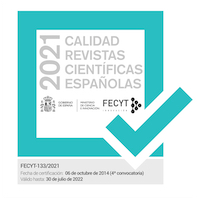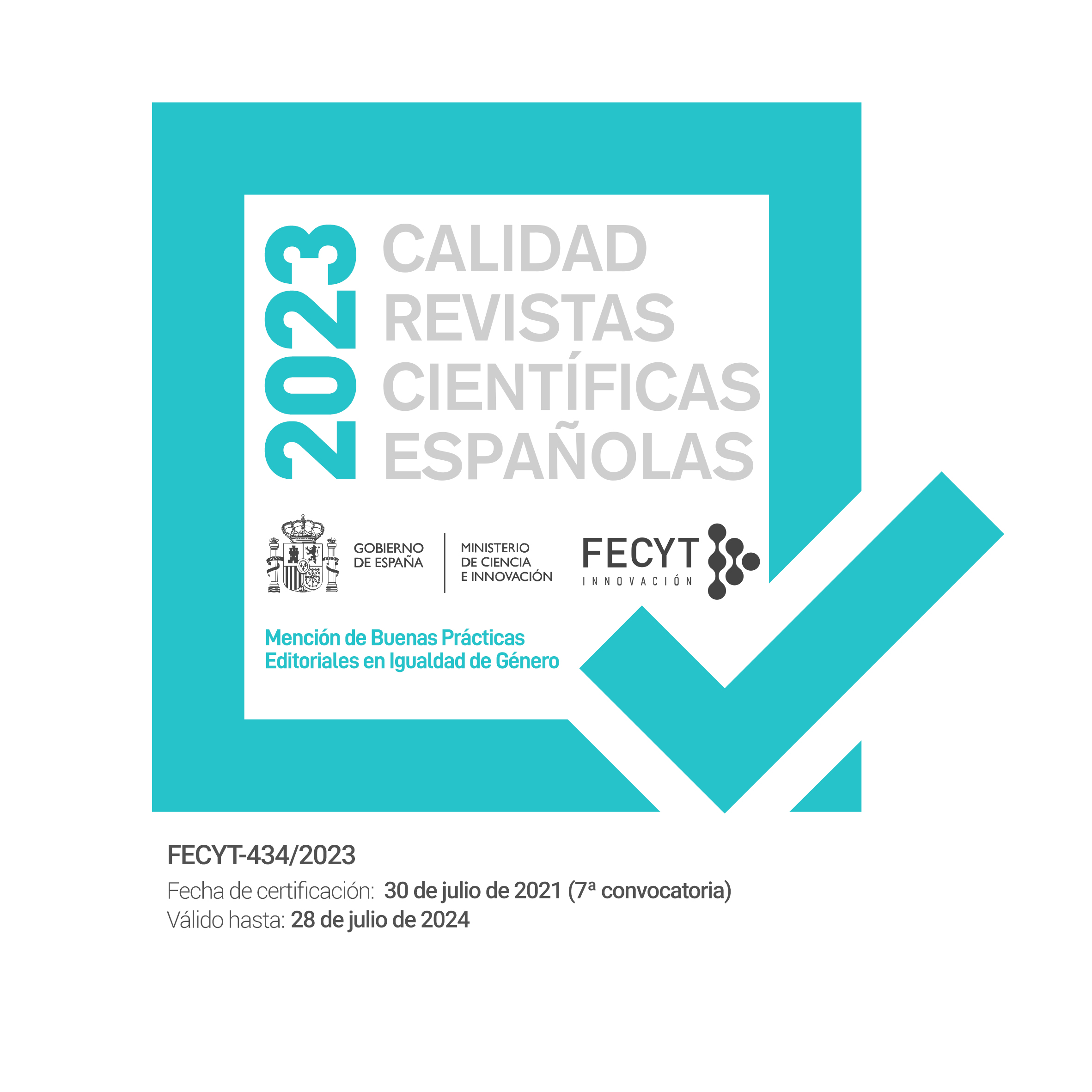El voluntariado como una nueva frontera en la precarización de los trabajadores migrantes: el caso de los solicitantes de asilo en Italia
Palabras clave:
asylum seekers, migration, precarity, voluntary workResumen
En el marco de las transformaciones del trabajo, el mercado del trabajo europeo ha asistido a un proceso de precarización estructural que ha conllevado formas de trabajo precario inéditas. Entre ellas, el trabajo no remunerado es una expresión de precariedad extrema por su separación total entre prestación y salario. Por distintas causas, los trabajadores migrantes son una de las categorías más afectadas por la precarización y viven una condición de doble precariedad (laboral y legal), causada principalmente por las políticas migratorias. Al mismo tiempo, la inmigración es involuntariamente el laboratorio donde se experimentan nuevas formas de trabajo flexible. Este artículo examina la conexión entre precarización laboral y migración a través del análisis del trabajo voluntario de los solicitantes de asilo en Italia - institucionalizado como política pública en 2014. Interpretado como mecanismo de “expiación pública” de la culpa de la migración a través del trabajo voluntario de utilidad pública, el artículo hace hincapié en el hecho que ese constituye una forma extrema de precarización de una categoría vulnerable. Mezclando elementos que ponen en entredicho la incondicionalidad del derecho al asilo y la socialización hacia la precariedad permanente, pone de manifiesto una “zona gris” de explotación laboral y inferiorización cultural.
Palabras claves: migración; precariedad; solicitantes de asilo; trabajo voluntario.
Citas
Antunes, Ricardo. The Meanings of Work. Brill, 2013.
Bascetta, Marco. Economia politica della promessa. Manifestolibri, 2015.
Basso, Pietro. “Politiche migratorie e precarizzazione del lavoro.” Gli immigrati, il lavoro, la casa (2004): 71-100.
Basso, Pietro. “Cittadinanza sociale e politiche migratorie in Europa.” Trasformazione e crisi della cittadinanza sociale (2014): 55-91.
Bauman, Zygmunt. Does the Richness of the Few Benefit Us All?. Polity, 2013.
Boswell, Christina, and Geddes, Andrew. Migration and Mobility in the European Union. Palgrave, 2010.
Caritas, Migrantes. Dossier Statistico Immigrazione 2004. Idos, 2004.
Castles, Stephen. Ethnicity and Globalization: From Migrant Worker to Transnational Citizen. Sage, 2000.
Castles, Stephen. “Guestworkers in Europe: A Resurrection?.” International Migration Review 4 . vol. 40. (2006): 741-766.
Castles, Stephen, and Derya, Ozkul. “Circular Migration: Triple Win or a New Label for Temporary Migration?.” Global and Asian Perspectives on International Migration. Springer (2014): 27-36.
Cillo, Rossana. Nuove frontiere della precarietà del lavoro. Ca’ Foscari, 2017.
Ciniero, Antonio. Economia flessibile e vite precarie. Liguori, 2013.
Cohen, Nicole. “Cultural Work as a Site of Struggle: Freelance and Exploitation.” TripleC 2. vol. 10. (2012): 141-155.
Costea, Bogdan, et al. “What killed Moritz Erhardt? Internships and the cultural danger of «positive» ideas.” TripleC 2. vol. 13. (2015): 375-389.
Crouch, Colin. The Strange Non-Death of Neoliberalism. Polity, 2011.
Fondazione Moressa. Rapporto annuale sull’economia dell’immigrazione 2018. Il mulino, 2018.
Fullin, Giovanna, and Emilio Reyneri. “Low unemployment and bad jobs for new immigrants in Italy.” International Migration 1. vol. 49. (2011): 118-147.
Gjergji, Iside. Sulla governance delle migrazioni (2016).
Holmes, Kirsten. “Experiential learning or exploitation?.” Museum Management and Curatorship 3. vol. 21. (2006): 240-253.
Hope, Sophie, and Figiel, Joanna. “Interning and Investing: Rethinking Unpaid Work, Social Capital and the «Human Capital Regime».” TripleC 2. vol. 13. (2015): 361-374.
Huws, Ursula. Labor in the Global Digital Economy. Monthly, 2014.
Kuehn, Kathleen, and Corrigan, Thomas. “Hope Labour: The Role of Employment Prospects in Online Social Production.” The Political Economy of Communication 1.vol. 1. (2011): 9-25.
Maes, Kenneth. “Volunteering or Labor Exploitation?.” Human Organization 1. vol. 71. (2012): 54-64.
Menéndez, Agustin José. “The refugee crisis: between human tragedy and symptom of the structural crisis of European Integration.” European Journal Law 4. vol. 22. (2016): 388-416.
Moore, Phoebe. “UK education, employability, and everyday life.” Journal of Critical Education Policy Studies 1.vol. 7. (2009): 453-473.
Morris, Lydia. Managing Migration. Civic Stratification and Migrants Rights. Routledge, 2002.
Niemann, Arne, and Zaun, Natascha. “EU refugee policies and politics in time of crisis.” Journal of Common Market Studies 1.vol. 56. (2018): 3-22.
Pastore, Ferruccio, and Henry, Giulia. “Explaining the crisis of the European Migration and Asylum Regime.” The International Spectator 1. vol. 51. (2016): 44-57.
Pasqualetto, Martina. “Il «volontariato» dei richiedenti asilo in Italia.” Remhu 49. vol. 25. (2017): 233-248.
Perlin, Ross. Intern Nation. Verso, 2012.
Postigo, Hector. “America Online Volunteers.” International Journal of Cultural Studies 5. vol. 12. (2009): 451-469.
Rodino-Colocino, Michelle, and Beberick, Stephanie. “«You Kind of Have to Bite the Bullet and do Bitch Work»: How Internships Teach Students to Unthink Exploitation in Public Relations.” TripleC 2. vol. 13. (2015): 486-500.
Samers, Michael. “New Guest Worker Regimes?.” An Anthology of Migration and Social Transformation (2015): 121-134.
Schierup, Carl-Ulrik. Migration, Citizenship, and the European Welfare State. Oxford, 2006.
Schierup, Carl-Ulrik. Migration, Precarity and Global Governance. Oxford, 2015.
Schierup, Carl-Ulrik, and Jørgensen, Martin. Politics of Precarity. Migrant Conditions, Struggles and Experiences. Brill, 2016.
Siebert, Sabina, and Wilson, Fiona. “All work and no pay: consequences of unpaid work in the creative industries.” Work, Employment and Society 4. vol. 27. (2013): 711-721.
Smith, Vicki. “Enhancing employability: human, cultural, and social capital in an era of turbulent unpredictability.” Human Relations 2. vol. 63. (2010): 279-303.
Unar. Dossier statistico immigrazione 2016. Idos, 2016.
Wickramasekara, Piyasiri. Circular Migration: a triple win or a dead end?. Ilo, 2011,
Zaun, Natascha. EU Asylum Policies. Palgrave, 2017.









